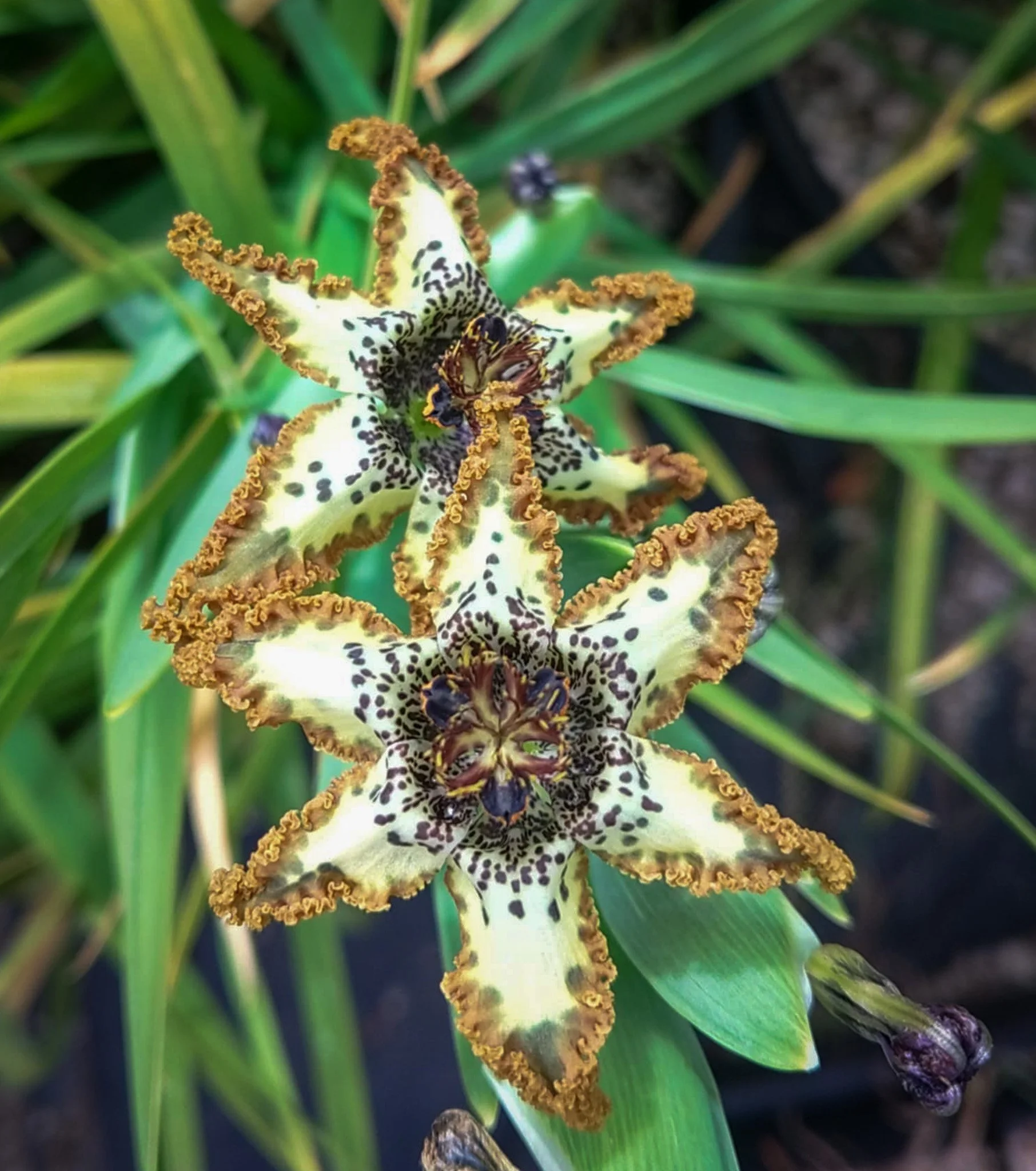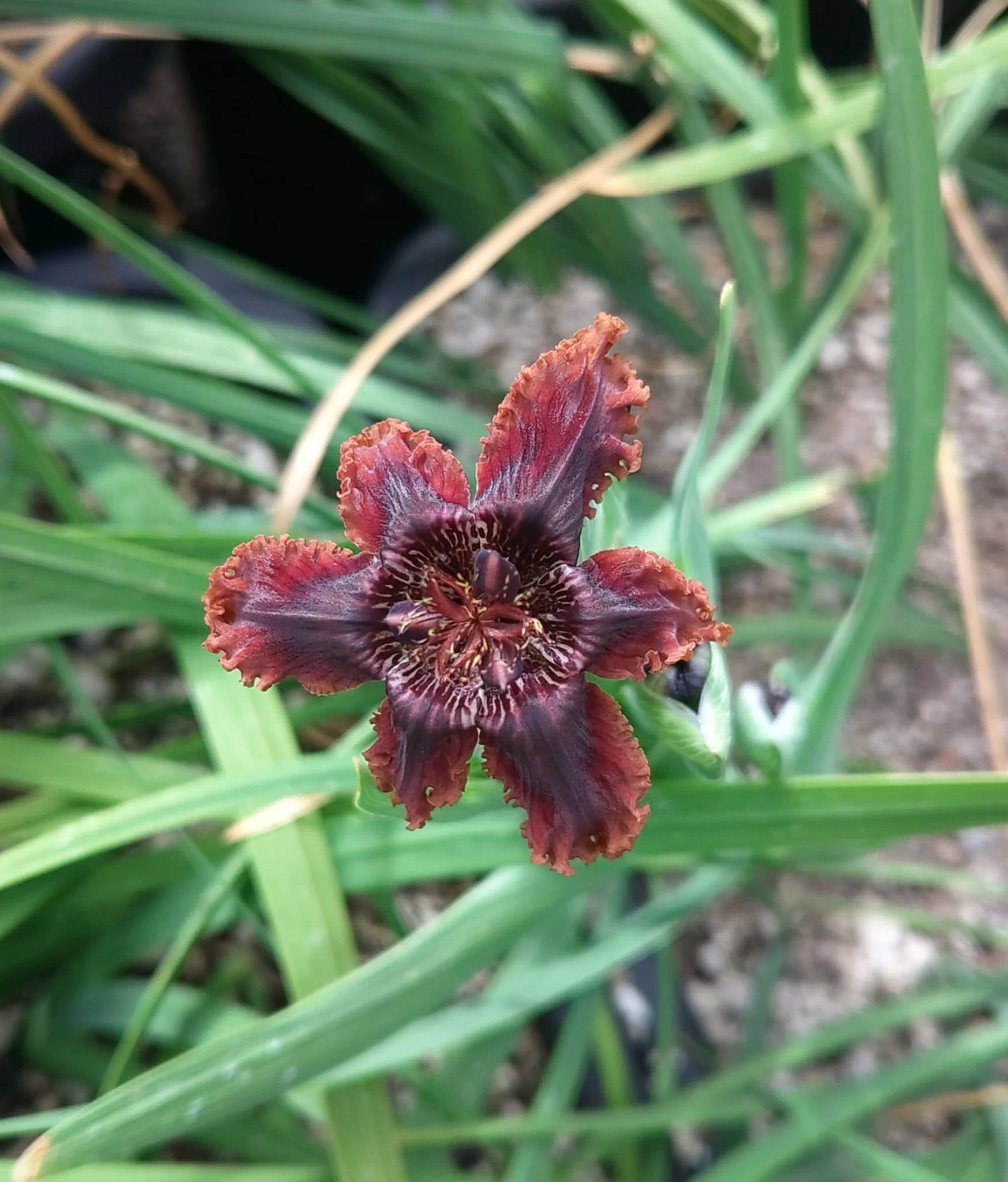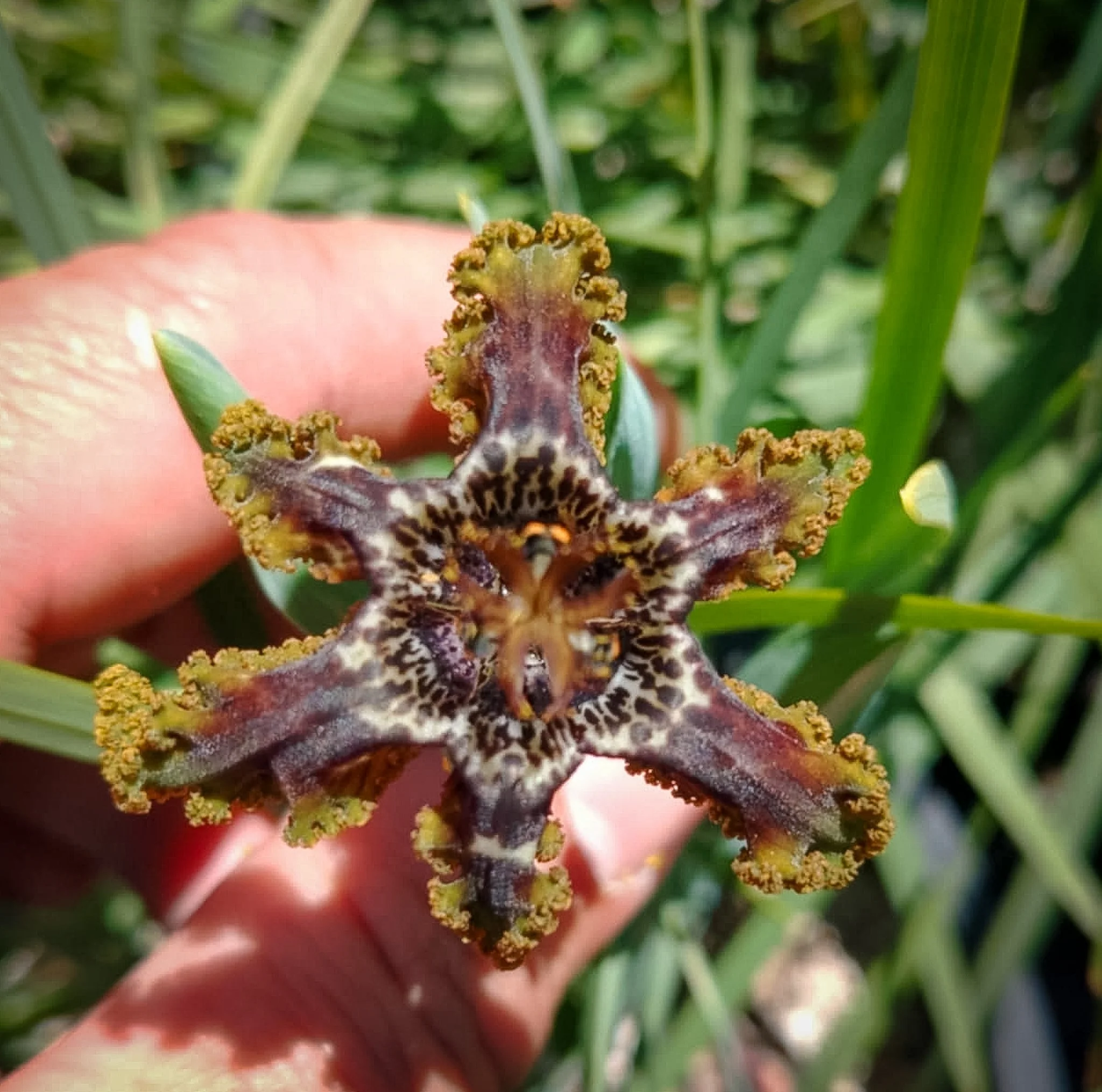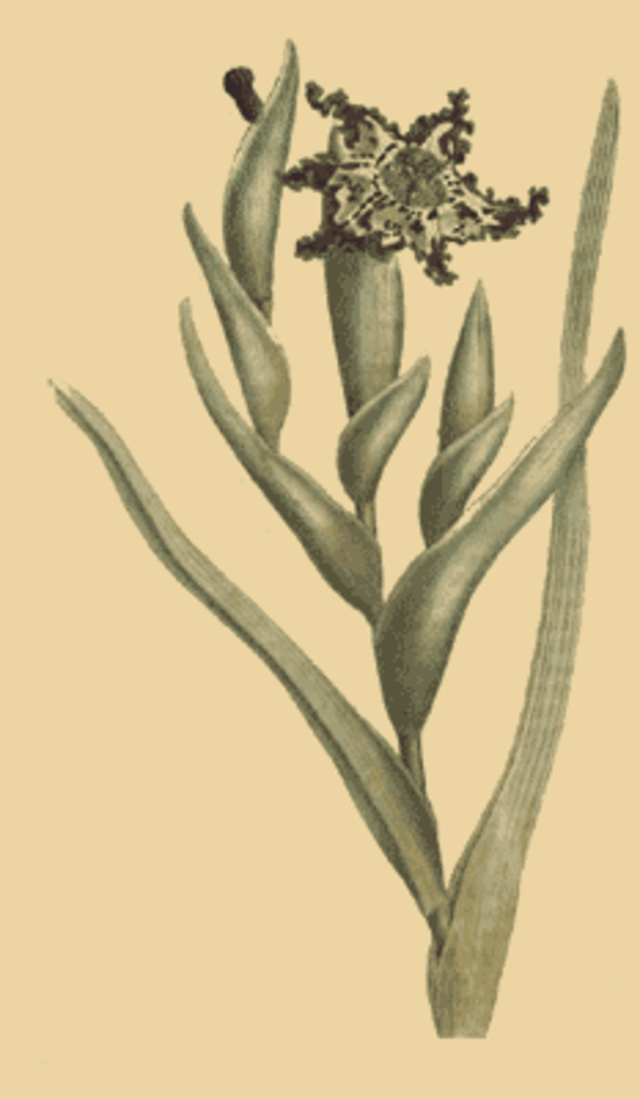
Ferraria nortieri
Spider Iris
A mesmerizing and rare species from the arid winter-rainfall regions of South Africa’s Northern and Western Cape, Ferraria nortieri is a standout member of the iris family, grown for its intricately frilled and patterned flowers in shades of chocolate brown, olive, ochre, or deep purple—often with metallic or iridescent highlights. The blooms are strikingly exotic, resembling something between an orchid and a sea creature, and are typically short-lived but produced in succession over several weeks in late winter to early spring.
In cultivation in the U.S., Ferraria nortieri thrives in Mediterranean-style gardens or containers where dry summers and mild, wet winters can be mimicked. It prefers sharply drained soil in full sun and does especially well in deep pots with a gritty mix. In rock gardens or specialty bulb beds in the mildest parts of California and the Southwest, it can be grown outdoors year-round. Elsewhere, it is best grown in pots under cover and kept dry during its summer dormancy.
Hardy only to around USDA Zone 9, this species must be protected from hard frosts. In colder zones, lift and store bulbs dry or keep them in a cold frame or greenhouse. A dazzling collector’s bulb and conversation piece for those who treasure the unusual.
Photo courtesy of James Shao
Spider Iris
A mesmerizing and rare species from the arid winter-rainfall regions of South Africa’s Northern and Western Cape, Ferraria nortieri is a standout member of the iris family, grown for its intricately frilled and patterned flowers in shades of chocolate brown, olive, ochre, or deep purple—often with metallic or iridescent highlights. The blooms are strikingly exotic, resembling something between an orchid and a sea creature, and are typically short-lived but produced in succession over several weeks in late winter to early spring.
In cultivation in the U.S., Ferraria nortieri thrives in Mediterranean-style gardens or containers where dry summers and mild, wet winters can be mimicked. It prefers sharply drained soil in full sun and does especially well in deep pots with a gritty mix. In rock gardens or specialty bulb beds in the mildest parts of California and the Southwest, it can be grown outdoors year-round. Elsewhere, it is best grown in pots under cover and kept dry during its summer dormancy.
Hardy only to around USDA Zone 9, this species must be protected from hard frosts. In colder zones, lift and store bulbs dry or keep them in a cold frame or greenhouse. A dazzling collector’s bulb and conversation piece for those who treasure the unusual.
Photo courtesy of James Shao






